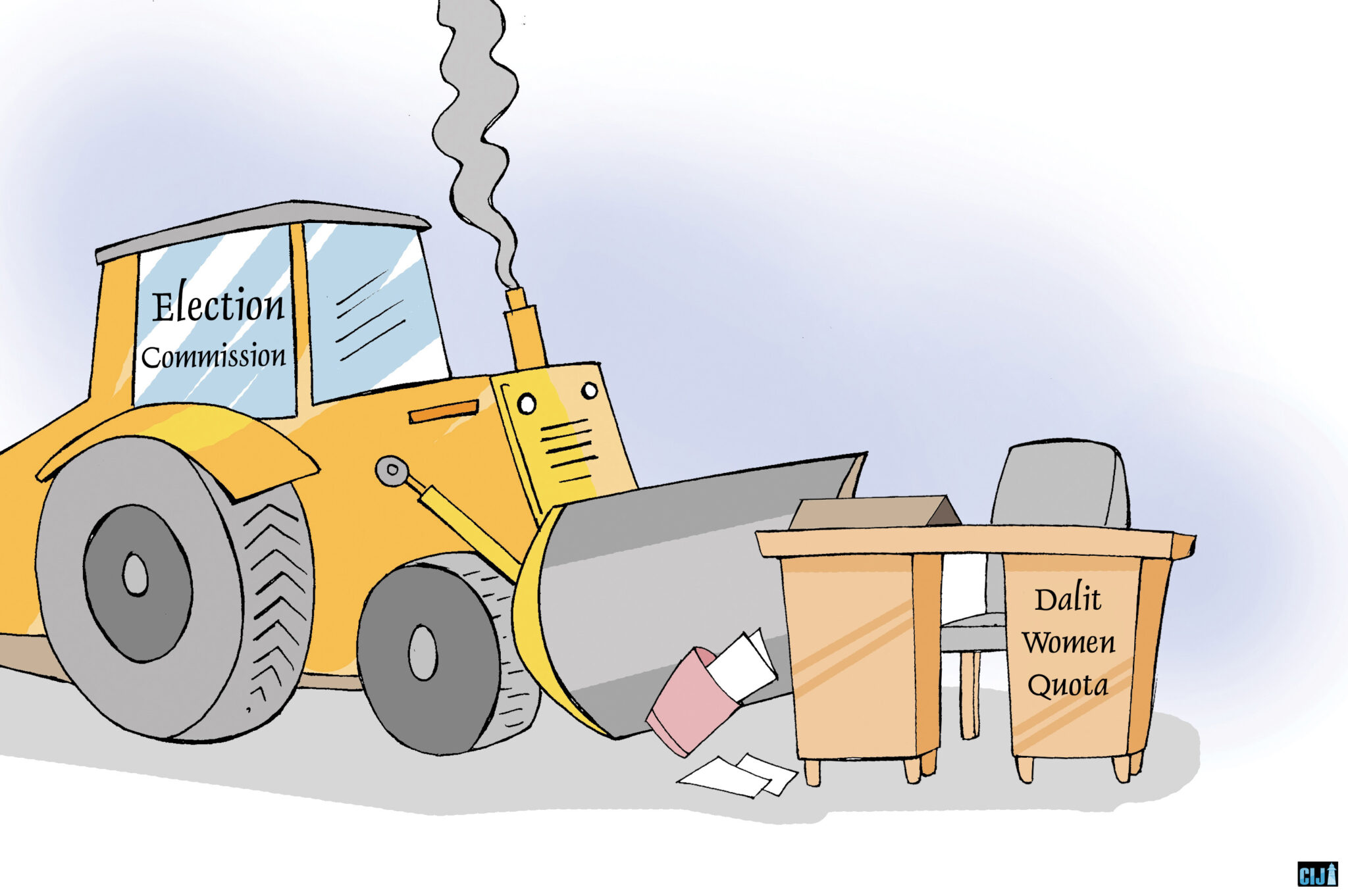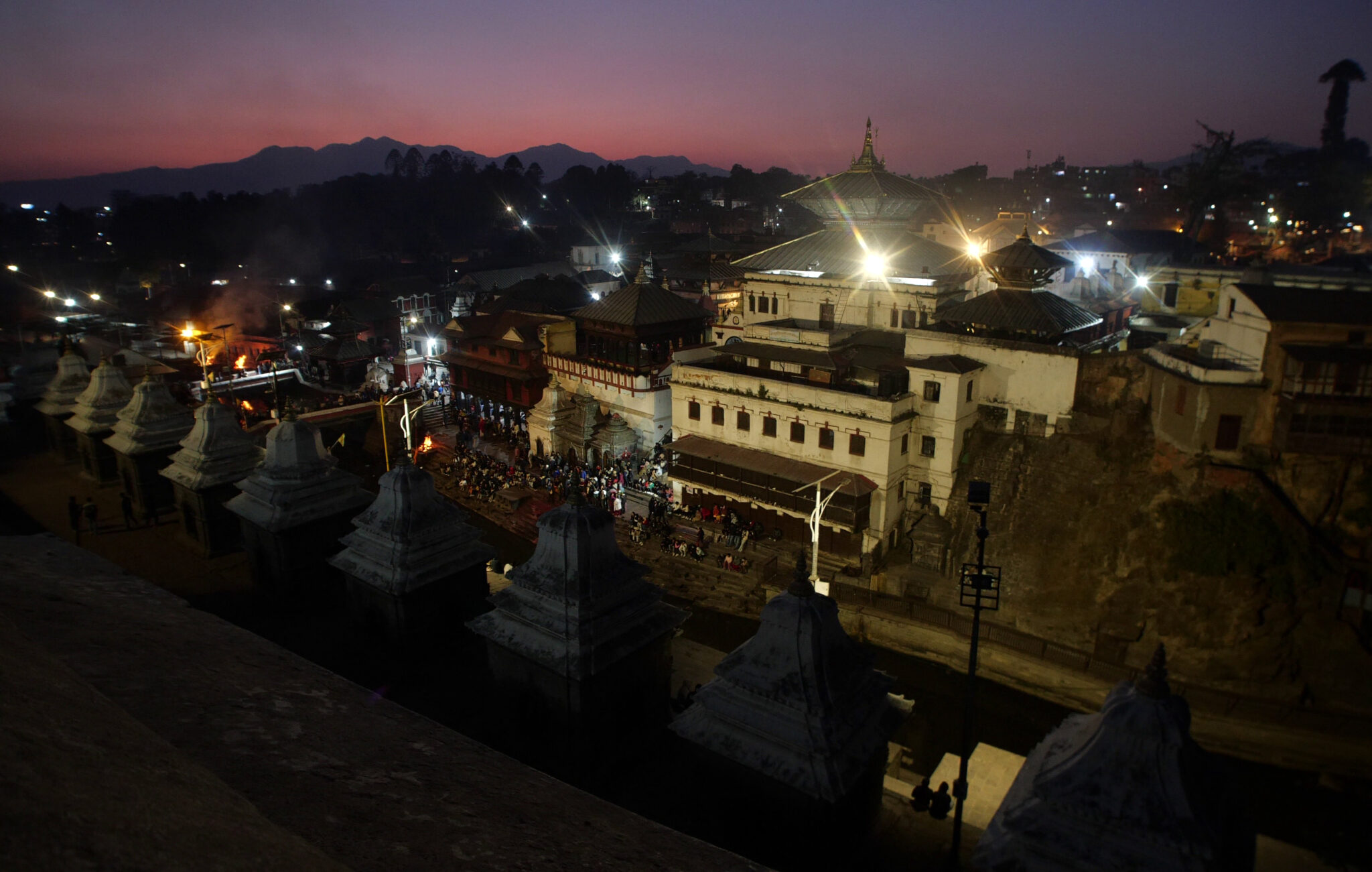The nexus between corrupt bureaucrats and officials at medical council and universities, colluding with the Supreme Court judges, lawmakers and private colleges, have infected Nepal’s medical education system.
RAMU SAPKOTA – Centre for Investigative Journalism
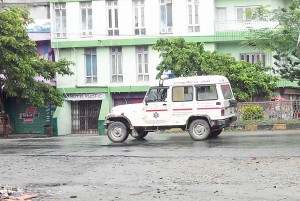 Registration of a medical colleges in Nepal involves a due procedure. It starts with receiving a ‘letter of intent’ the from Ministry of Education (MoE), then comes the monitoring part from the university and Nepal Medical Council (NMC), which decides whether or not the applicant fulfills prescribed criteria for university affiliation.
Registration of a medical colleges in Nepal involves a due procedure. It starts with receiving a ‘letter of intent’ the from Ministry of Education (MoE), then comes the monitoring part from the university and Nepal Medical Council (NMC), which decides whether or not the applicant fulfills prescribed criteria for university affiliation.
The criterion include determining the number of qualified faculties, availability of a well equipped laboratories, a library, a teaching hospital and sufficient number of classrooms among others. These criterions also apply to periodic monitoring of existing medical colleges by NMC, for granting approval of seats for intake. But, CIJ’s investigation has revealed that colleges have been bypassing this rigorous process by using their high placed political connection.
As a result, understaffed and ill-equipped medical colleges have mushroomed across the country, that are producing underqualified doctors, putting millions of public life at risk.
In 2010, an expert committee led by Dr Bimal Kumar Sinha had found massive irregularities in the licensing process of medical colleges. The committee report stated that the colleges were given affiliations without following due procedure. Investigations into College of Medical Sciences in Bharatpur, Nobel Medical College in Biratnagar exposed lack of adequate physical infrastructure, as well as sufficient number of faculties. The council had provided a false monitoring report based on which the colleges were handed affiliation letters.
Five years after the Sinha led committee filed its report, the ill-equipped colleges continue to operate, while the report gathers dust at Commission for the Investigation of Abuse of Authority (CIAA), Nepal’s anti-graft body.
Baburam Marasini, a senior epidemiologist and former registrar at the medical council told CIJ, ‘The government has set a clear guideline and even prescribed locations of future medical colleges as per local needs.But they have not been followed.’ Says Marasini,‘No wonder they are propping up like grocery stores.’
Every year, before NMC conducts these surprise inspections information is leaked to the colleges, who get sufficient time to cover up. Hospital beds are filled with fake patients while faculties are recruited overnight to meet the requirements.
Niranjan Kumar Yadav, an agent admitted bringing 52 such faculties from India for Nobel Medical College’s inspection last month.They arrived from India on 19 August and were lodged at different hotels in Biratnagar during their stay.
We found that the college was pre-informed about the inspection. They even knew who was in the inspection team.
Depending upon NMC’s seat allocation, private medical colleges make upto estimated 10 billion rupees from students every year. We were not surprised to find, colleges lobby hard among decision makers with huge financial incentives to maximise the number of seats while relaxing the criteria to run the MBBS program. It was the result of this intense lobbying, in 2013 NMC reduced the required number of beds in hospital for every student from 7 to 5.5.
Out investigation revealed, even the anti-graft body like the CIAA is entrenched in the mess, showing odd interest in NMC’s seat allocation decisions. CIAA has been found to be meddling in council’s affairs in determining seat numbers, sending letters and copies of minutes implying CIAA’s satisfaction with seat numbers and college inspection.
Two such letters sent to NMC, the first one dated 15 August 2014 is regarding proposed accreditation to Birat Medical College and Devdaha Medical College, and the other, on 1 December 2013 is regarding number of allocated seats for various colleges. The fact that owner of Birat Medical College is a close family member of CIAA chief Lokman Singh Karki, clearly reflects a conflict of interest.
Among the minutes we found during the investigaion, there were those directing the council to allocate number of seats in private medical college for MBBS program, for the year 2014/15. That year NMC allocated 125 seats for MBBS in National Medical College in Birgunj, zero seats for Janaki Medical College in Janakpur, 135 seats in MBBS and 65 seats in BDS for Bhairahawa’s Universal College of Medical Sciences, 60 BDS seats for People’s Dental College among others.
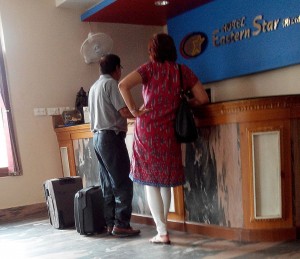 Jyoti Baniya, one of the council member says he was against NMC taking arbitrary decisions on seat allocation. Says Baniya, ‘There was no clear grounds on which the number of seats were increased in Gwarko’s KIST Medical College.’ He told us CIAA was closely involved in the council’s decision in this regard. ‘I found that NMC was taking instructions from CIAA secretariat, and when I questioned this, they filed a case against me.’
Jyoti Baniya, one of the council member says he was against NMC taking arbitrary decisions on seat allocation. Says Baniya, ‘There was no clear grounds on which the number of seats were increased in Gwarko’s KIST Medical College.’ He told us CIAA was closely involved in the council’s decision in this regard. ‘I found that NMC was taking instructions from CIAA secretariat, and when I questioned this, they filed a case against me.’
We were not surprised to find out, Balman Singh Karki, owner of KIST was the brother of CIAA chief Lokman Singh Karki.
We also discovered, council chairman Dr. Damodar Gajurel and registrar Dr. Nilmani Upadhyay had visited China with Balman Singh Karki following the seat allocation decision last year. The visit was arranged by Nepal’s ambassador to China Mahesh Maskey.
On 17 September 2014, an investigation committee set up by health ministry showed serious misappropriation by NMC on seat allocation. The committee held that Gajurel had abused his powers and amassed properties while allocating seats to medial colleges. The committee recommended immediate suspension of chairman Gajurel, registar Upadhyay and Vice president Dr A.E.Ansari for misappropriation. Gajurel was sacked but the others were let off.
Over the years, owners of medical college have invested huge sums of money, lobbying for loosening the criteria set by the council. An official from a private college told CIJ, they had to bribe health secretary Dr. Pravin Mishra and council chairman Gajurel to lobby for the same. (listen to the audio clip)
Student admission process is another area of medical education which is enmeshed in corruption. Although several medical reform committees in the past have suggested mandatory entrance examination for local and international students, many colleges have flouted rules to admit foreign students without taking an entrance exam.
MB Kedia Dental College in Birgunj, Kantipur Dental College in Kathmandu, and Universal Medical College in Bhairahawa have all been taking huge donations for admitting foreign students without taking qualifying exams. CIJ has found cases where Nepali students have also been admitted as Indians to bypass the entrance examinations.
Every time IOM and universities announce entrance examinations, college owners rush to the courts to seek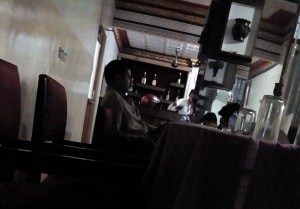 exemption for Indian students. Surprisingly, the colleges have always managed to secure a stay order in these cases. The official at Bhairahawa’s Universal Medical College told us, the college had been bribing judges and lawyers to bring the case in their favor (listen to the audio clip).
exemption for Indian students. Surprisingly, the colleges have always managed to secure a stay order in these cases. The official at Bhairahawa’s Universal Medical College told us, the college had been bribing judges and lawyers to bring the case in their favor (listen to the audio clip).
Satish Kumar Deo, who was head of council’s ethical committee confirms, ‘We found many Indians and some Nepali students were admitted to Kedia Dental College and Kantipur Dental College without sitting for entrance exams.’
Of the 19 students admitted to Kedia Dental College in that manner, 14 have already received practicing license from NMC.
The last piece to the corruption puzzle in medical education is the irregularities in the examinations. Colleges take additional sum from students to pass them in the medical tests. ‘No matter how weak the students are, it is my responsibility to ensure they clear the tests,’ Dhurva Poudel of Universal Medical College told us, boasting of right connections in the right places.
(additional reporting by Kamal Rimal in Biratnagar)
Nepali students admitted as Indians in Kedia Dental College in 2006/2007
Ajay Kumar Asthana, Preksha Shah, Rajendra Bhatta, Roshan Kumar Shah, Kavita Singh, Pratima Kumari Yadav, Prerna Singh Parmar
Nepali students admitted as Indians in 2008/2009
Binita Singh, Dipak Kumar Sharma, Dhananjaya Mali, Pushkar Tiwari, Raj Krishna Shrestha, Rajneesh Khadka, Sarita Pandey, Sashikanta Chaudhary, Sitaram Singh Kushwaha, Gajendra Kushwaha, Rajju Kumar Shah and Prashant Kumar.
Source: Complaints filed at Nepal Dental Association

